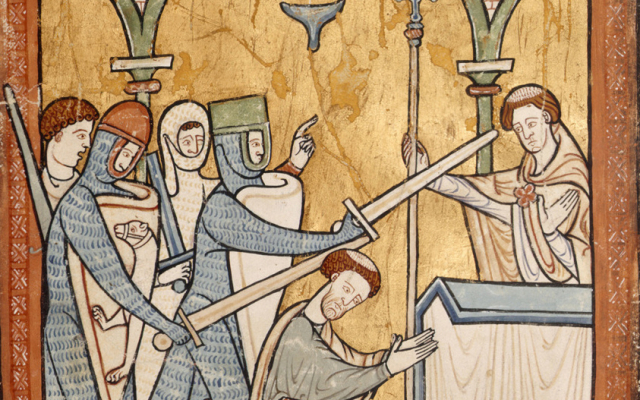Peace & Negotiation in Medieval Britain (c. 1000–c. 1300)
The importance of trusted messengers and negotiators

The idea of medieval diplomacy conjures scenes of great drama: royal stalemates in which armies stared each other down across a river; surrender terms after decisive battles; and the pomp and circumstance of taking oaths, making knights, and performing homage. To maintain or establish peace, rulers had to make and adapt plans, listen to the advice of councillors, and manage their own expectations and reactions. This, however, is not the full story. Peace making also depended on the strength, stamina, and discretion of those entrusted with carrying messages between rulers.
In this podcast, Dr Winkler and Dr Jones go back to the chronicles, looking at the activities of messengers in their own words, and the stories of historians who were themselves experienced negotiators. With a focus on the twelfth century, they ask: in what capacity did people negotiate, and for whom? Did peace making always happen between peoples (‘English’ and ‘Welsh’), or between other kinds of identities people adopted? In their conversation, Dr Winkler and Dr Jones discuss the high stakes of peace in medieval Britain, and explore a day in the life of a medieval messenger.
1. How would you describe peace and negotiation in medieval Britain?
2. Increased literacy and secrecy.
3. Was there a set of rules for negotiation? The importance of the trusted individual.
4. Who were the English and who were the Welsh? How important is ethnicity and does this change over time?
5. Is there a sense of a collective English identity at this time?
6. Examples of medieval messengers in England.
7. Medieval messengers in Wales.
8. What was at stake in these negotiations?
9. Ignorance and the benefit of hindsight.
In order to access the full content of the podcasts please Login or Join the HA.

